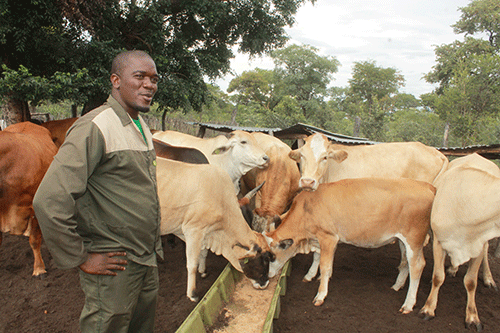ONGWEDIVA – The agriculture ministry has cautioned farmers and the public to be on high alert after the outbreak of the Contagious Bovine Pleuropneumonia, commonly known as lung disease.
The disease was recently detected at the Oshandi crush pen in the Ondobe constituency of Ohangwena.
A complete ban on the movement of cattle has come into immediate effect in the constituency.
Lung sickness is mainly a disease of cattle and water buffaloes, caused by a bacterium called mycoplasma mycoides, a type of bacteria that attacks the lungs of susceptible animals.
In a statement, the ministry said that some farmers at Oshandi crush pen notified veterinary officials in the region after observing signs consistent with lung sickness in their cattle, mainly coughing.
“The investigation by veterinary officials established clinical signs of lung sickness in six cattle out of the herd of 71. Lung sickness was confirmed by the Windhoek Central Veterinary Laboratory on 31 May 2022,” the statement reads.
It is indicated that in Africa, lung sickness is known to cause greater losses of cattle than any other disease, as it may result in a death rate of more than 50%.
The ministry said that cattle death due to lung sickness may be sudden. However, the disease often develops in a chronic form, resulting in subsequent cattle deaths over a period of time.
“Humans are not susceptible to lung sickness, thus no public health risk.”
Control measures
“A number of roadblocks will be set up at strategic points and members of the public are urged to cooperate with the veterinary and police officials,” urged the chief veterinary officer Albertina Shilongo.
Shilongo also said the surveillance teams have been deployed in the region to establish the extent of the outbreak and she requested farmers to cooperate and present their livestock for inspection.
Vaccination of all cattle at risk against lung sickness is currently underway and all farmers are strongly urged to present their cattle for vaccination at their respective crush pens.
“Movement of cattle for direct slaughter within the constituency provided that they move under the official movement permit and get slaughtered within 72 hours under the veterinary supervision is allowed. These cattle should not come in close contact with cattle not meant for slaughter at the place of destination,” she added.
According to the information from the ministry, the transmission of the disease occurs through direct contact between the infected and a susceptible animal by inhaling droplets disseminated by coughing.
Chronically infected cattle carry and spread the disease without showing signs of illness for long periods and the treatment of affected animals with antibiotics can result in healthy-looking animals that are still infected and be able to spread the disease, therefore it is not recommended.
The same disease was also detected in the Kavango West region in March this year.
– ashikololo@nepc.com.na


